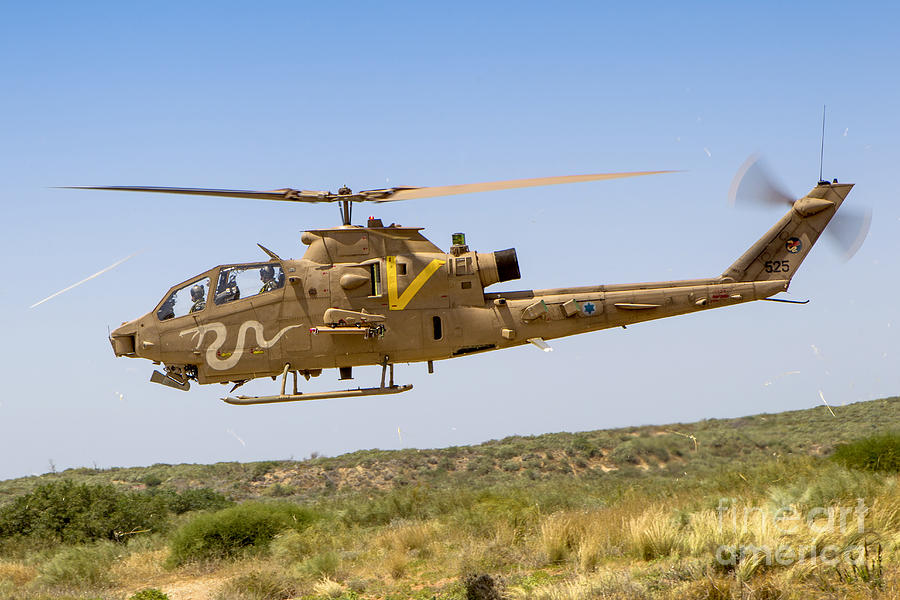This is a Bell AH-1 “Cobra” helicopter.
It was commonly used as an attack helicopter during the Vietnam war. I would like for you to observe that it has two seats: one for the pilot and one for the co-pilot. It has no more seating inside. It is only designed to carry two people, plus armament and ammo. This will become significant in a little bit.
On Monday, Capt. Larry L. Taylor (United States Army – ret.) was awarded the Medal of Honor for actions on June 18, 1968.
Four members of a Long-Range Reconnaissance Patrol were in the field, behind enemy lines, when they discovered they were surrounded on all sides by the enemy. They called for air support and extraction. Two AH-1 helicopters, led by Lt. (at the time) Taylor responded.
Over the next 45 minutes, as the team marked their spot with flares in the darkness, Taylor led the two gunships on strafing runs, emptying both helicopters of their mini-gun ammunition and air-to-ground rockets.
Each time they did, thick fire erupted from the ground, hitting the Cobra multiple times.
He also directed supporting artillery, relaying fire corrections and ordering up illumination rounds over the enemy’s heads, which caused fires as they hit the ground.
The Cobra pilots thought they were only providing support until a rescue helicopter showed up. Then they got word that the rescue had been called off.
With nearly no ammo left to shoot, and with dozens of enemy soldiers closing in on the four Americans, Taylor ordered his wingman to attack a nearby treeline and then return to base.
He then radioed a desperate plan down to the soldiers below.
Create a diversion, Taylor told the team. Then run 100 yards to a nearby open field and lay down when you get there.
As they sprinted into the open, Taylor dove his helicopter, flashing his lights to draw enemy fire away from the exposed soldiers as he strafed the same treeline.
The plan was something never tried in combat before. Although his gunship was built as a flying gun platform, with just two seats for Taylor and his gunner, Taylor was going to pick them up.
As Taylor set down in the field and rounds snapped past them, the four men scrambled onto the Cobra’s skids, clinging to rocket pods and anything else they could grab.
Taylor took off and flew several miles, well clear of the fight, before setting down, where the team could wait for evacuation. The soldiers were David Hill of Visalia, Ca., Robert Elsner of New York City,. Gerald Patty of Maryville, Tn. and William P. Cohn of Norwich, Ct.
He flew four guys out of a hot combat zone, hanging on to a helicopter that was designed for just two people. Please keep in mind that, because he had four guys hanging on the outside of his helicopter, he had to fly low and slow, which left him (and his passengers) vulnerable to enemy fire.
He was originally awarded the Silver Star for his actions: the Medal of Honor represents an upgrade to that award. I can’t find the story now, but I recall reading somewhere else that the delay in awarding him the MoH was a result of his senior officers. Specifically, many of the senior officers who could have bucked a MoH up the chain of command…were killed, either in helicopter crashes or in action.
Army.mil story. I believe this includes the full text of his citation.
Edited to add: NYT (archived).

I watched the ceremony on television. While there are some who want to make a big deal out of the President leaving just as soon as he awarded the medal, to me it was no big deal. The entire thing was about the bravery of the Captain.
It seems like nearly any story that I have ever read about our pilots in Vietnam, either fixed wing or rotary wing, to a man they showed bravery above and beyond duty at nearly every instance. No doubt that was not always the case, but the times when pilots risked all to save men on the ground, often knowing that the risk was almost total, shows one of my favorite Bible verses.
John 15:13
Greater love hath no man than this, that a man lay down his life for his friends.
Often that is the only thing that men on the ground have described as fighting for, the man next to himself. Thoughts of fighting for some greater cause, or to preserve liberty fail, when the bullets are flying and the bombs falling nearby. I have no words to say that could begin to thank all of those who serve, or have served, whether in time of peace or war. May God remember the time they spent defending something worth defending.
thanks for sharing this CBD.
you are also a man of distinction
pigpen:
That’s one reason I wanted to post this. I thought the stories about President Sleepy Joe were overshadowing a really good story about a great act of heroism that I think deserved more notice.